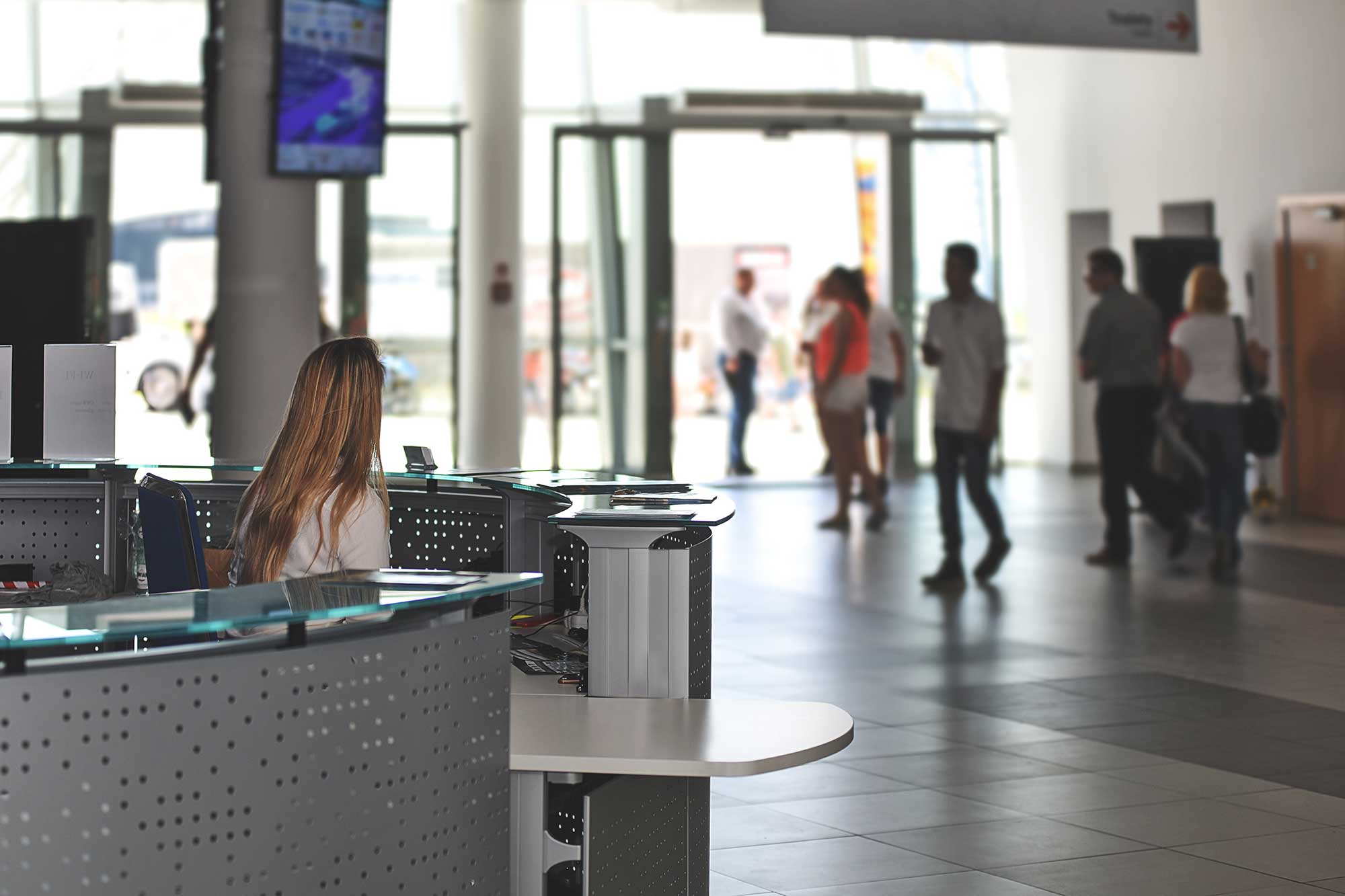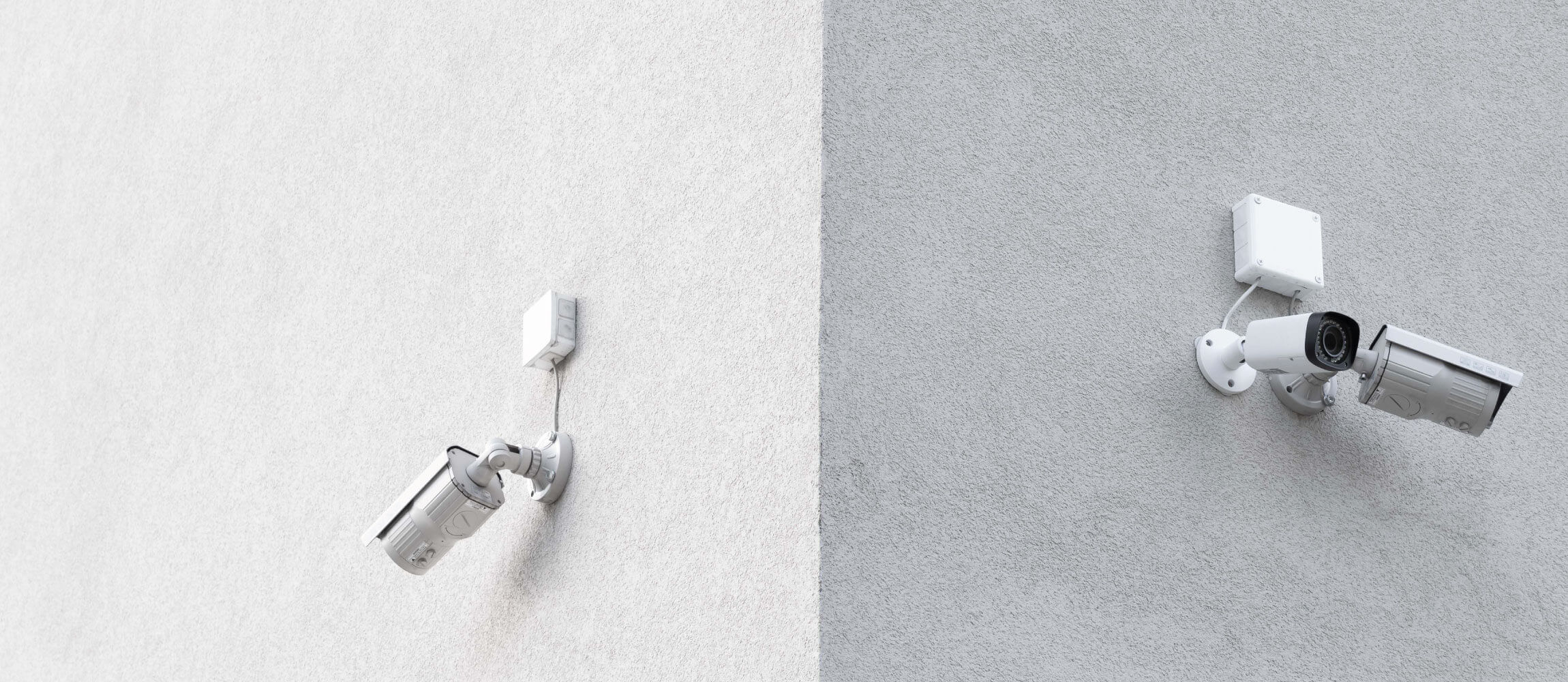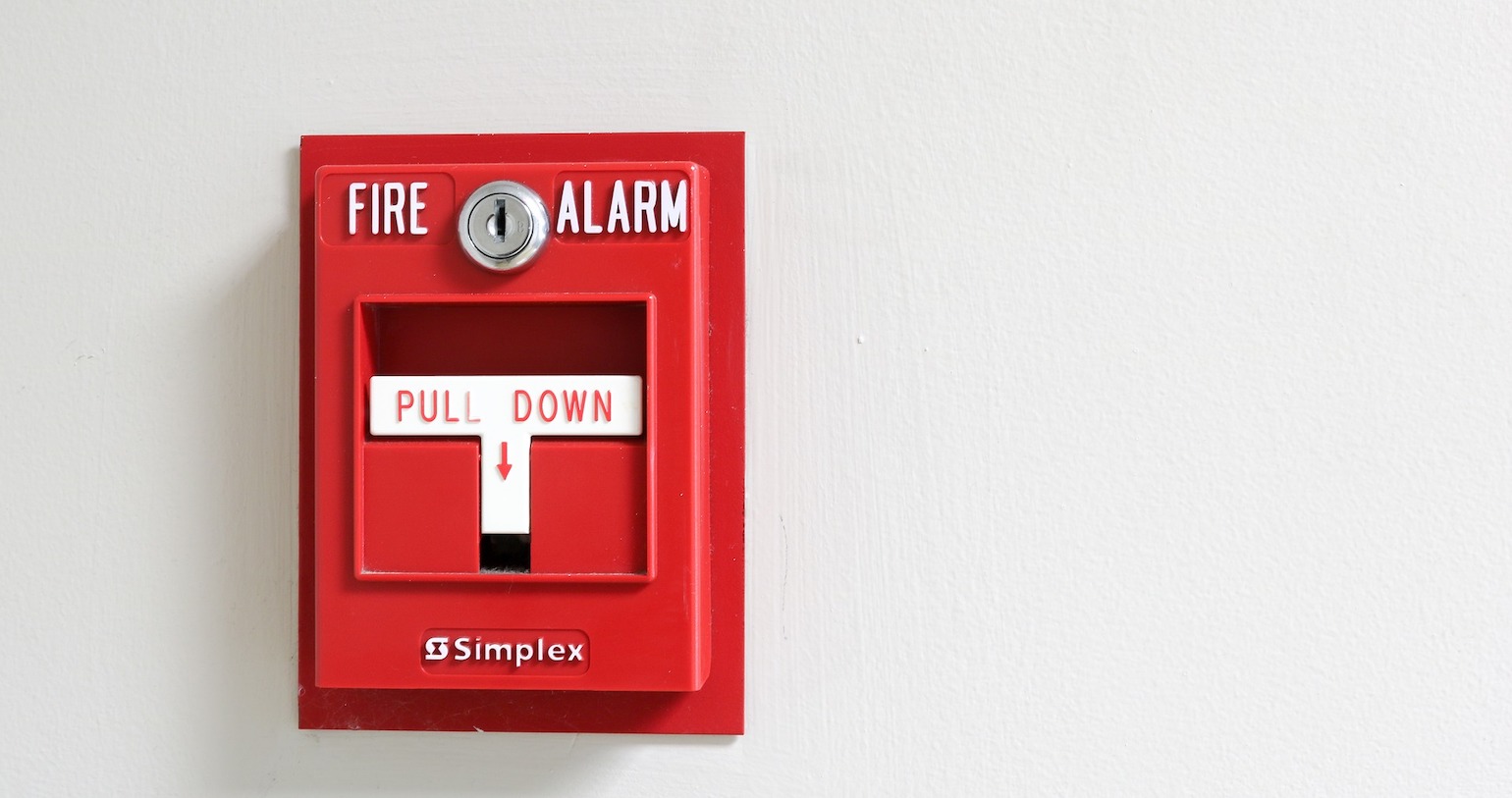Guide to Facility Management
August 25, 2022
Commercial construction has been a steadily growing industry in the United States for nearly a decade. In 2017 alone, approximately $86.95 billion was spent on commercial building projects. All of those new buildings are also being filled at rapid rates; by the third quarter of 2019, retail space vacancy rates are forecasted to be at 11.4% and vacancy rates for industrial spaces are expected to be at 6.7% mid-to-late this year. With construction projects and new commercial buildings opening all of the time and vacancy rates declining, Facility Managers and facility management teams are more important than ever before.


What is Facility Management?
The simple answer: facility management (FM) is the practice of operating, maintaining, and often improving a commercial building. Successful facilities management comes down to providing professional support effectively and more efficiently. Facility Managers and their teams must coordinate the supply of services and facilities with the demands of the public and private organizations they serve.
Standards for Facility Management
According to the International Organization for Standardization, facility management is the “organizational function which integrates people, place and process within the built environment with the purpose of improving the quality of life of people and the productivity of the core business.” The ISO published ISO 41011:2017, the organization’s standard for facility management, in April 2017.
Types of Managed Facilities
Facilities management is necessary for a variety of types of public and private buildings, as well as building systems:
- Real Estate Property
- Buildings (office, retail, educational, industrial, public facilities, etc.)
- HVAC
- Lighting / Electrical
- Technical Infrastructure
- Transportation
- IT Services
- Custodial / Grounds
- User-Specific Equipment / Appliances / Furniture
The management of these facilities incorporates many different disciplines, processes and technology in order to deliver the best experience for the workforce and organization as a whole. By integrating people and the building itself with technology and strategic processes, FMs can provide better safety, functionality, comfort and efficiency with the buildings they manage.
The Role of the Facility Manager
Facilities Managers perform many essential functions and are a valuable asset to an organization.
- Operations – Ensuring the most effective environment for occupants, with consideration for safety, functionality, efficiency, and sustainability.
- Strategy – Assessing their spaces, services and resources and advising their clients and sometimes end-users on the most beneficial decisions or courses of action.
Facility Manager roles for operations and strategy play out in the following areas:
Ensuring Occupant Safety
As mentioned above, ensuring the safety of a building’s occupants is the most important role of a Facility Manager. Part of their responsibilities include controlling and managing many different safety issues related to the workplace environment. If they fall short or make mistakes, unhealthy or unsafe conditions could be the result, jeopardizing employees by putting them at higher risk of injury or illness. The business consequences could range from added costs to loss of business and insurance claims or legal prosecution. Lastly, safety lapses could create additional business hardship in the form of reduced investor confidence or negative publicity. Fires are most likely the most significant threat to facility safety, since this threat poses a high risk for loss of life and property damage and could even force a business into bankruptcy or closure. FMs should focus on fire safety as their first emergency management protocol, ensuring the appropriate placement, condition, and function of systems and equipment. The facilities manager will also likely be responsible in some way for keeping records of inspections and compliance certificates, as well as coordinating and planning emergency exit plans for the optimal flow of personnel in the event of an emergency.
Maintaining Security Systems and Personnel
Many times, the safety of a building’s workforce is also dependent upon security. Maintaining the security systems and hardware associated with them (including cameras), 24/7 monitoring, ensuring WiFi and/or phone line stability for emergency calling, and other security extensions all typically fall under the role of the Facility Manager. Sometimes, security guards and other security personnel may fall under another department for management, such as Human Resources, but the facilities manager will still need to work with these individuals as they use and require the support of the systems that the FM is responsible for maintaining.
Managing Building Operations
The majority of a Facility Manager’s role is taken up in the day-to-day management of building operations. Although many tasks may actually be carried out by the Facility Manager’s team of technicians or an outsourced vendor, an on-site Facility Manager will need to be involved for cases where immediate response or in-person review is necessary. Many tasks in building operations simply require periodic maintenance, while others will delay or stop the productivity of the business. The majority of tasks will likely be handled by a ‘help desk’ for receiving and prioritizing tasks, then issuing technicians or specialists for resolution of the problem. Some buildings may separate their facilities management into ‘hard’ services such as the management of electrical, HVAC and mechanical systems or ‘soft’ services like meeting room bookings and mail room organization.
Additionally, the FM will be responsible for the day-to-day building operations as a whole, and therefore should be knowledgeable and capable of completing most tasks themselves in emergency cases where the team or vendor is unavailable.
Performing Facility Maintenance & Inspections
As part of general building operations management, the facilities manager and their team will likely spend most of their time in equipment and systems maintenance. Generally speaking, the facility maintenance FMs are responsible for includes anything that is required for the upkeep and improvement of buildings and their components, including preventative maintenance, remedial and upgrade work hours. They must inspect existing machinery and systems for appropriate functionality, perform any necessary repairs or cleaning, and test new systems to replace failing or less-than-efficient ones. Other roles may include:
- Plumbing
- Electrical
- Carpentry
- Painting / Decorating
- Glazing
- Welding
- Plastering
- Tiling
The goal is to keep the entire building and facility operating as safely as possible, while maximizing operational efficiency, increasing the lifespan of equipment assets and minimizing the risks of systems and machine failure. Additionally, FMs must meet safety and operational compliance standards and statutes. To keep on top of all of this work (and all of the records, work history, floor plans and other documentation associated with it), Facility Managers often use a computer system or specialized facility management software.
Assigning & Changing Workspaces
The allocation of workspaces and designing the flow of people through buildings may also fall under a Facility Manager’s job responsibilities. In most office spaces, floor plans and room layouts may change frequently – as often as employees leave or join the business’ workforce. The facilities management team is often involved with (or in charge of) planning for these changes, using their knowledge of the systems available in the space (i.e. where existing power sources or telephone jacks are located) and computer-aided programs to determine the best layout. FMs must also take statutory regulations into account, including:
- Fire safety regulations
- Minimum square-footage per staff member
- Lighting placement and brightness
- Ventilation locations and proximity
- Temperature controls
- Arrangement of facilities such as restrooms, drinking water, vending machines, or lounge spaces
Cleaning & Janitorial Services
Although a Facility Manager rarely is the one doing the actual cleaning and janitorial work, they are responsible for managing an in-house janitorial team or outsourcing the service to a vendor. Typically, these services occur after business hours, but there should be provisional measures in place for handling things that come up during the day such as:
- Replenishing consumable products like toilet paper, hand soap, and paper towels
- Emergency facilities cleaning for spills, overflowing plumbing, etc.
- Litter picking
Planning for Business Continuity
No one wants a disaster that completely destroys their business facility, but it’s vital that facilities managers have a plan in place in the rare case that this occurs. All organizations should put together a Continuity Plan that will enable their business to recover quickly in the event of a fire or major disaster. For larger organizations, this may mean moving staff to a secondary work site that is either another location of the business or – ideally – a separate location that models the existing operations. Not surprisingly, the facilities manager should be deeply involved in this planning process, since their team will be critical for the process of moving the business to the recovery site.
Top Facility Manager Skills
Communication is a very important skill no matter what your job, and this is especially true for Facilities Managers who must communicate clearly and effectively with their team as well as with building owners, staff occupants, and service vendors. With so many ‘hats’ to wear and a variety of roles that fall under their responsibility, facilities managers can be far more successful with a higher level of skill in the following areas:
Building Operations & Maintenance: The greater the understanding of building operations and maintenance, and the more refined the actual skill in implementing this knowledge affects a FM’s success.
Information Management: Facility Managers have to process a lot of different types of information, and they can harness the data they have to make more strategic decisions.
Project Management: In addition to delegating facilities tasks such as janitorial and maintenance, Facilities Managers often have larger projects they are directing, such as implementing new systems or upgrading equipment.
Problem Solving: In many cases, the Facility Manager is the most knowledgeable building asset and their ability to problem solve makes a big difference when systems fail or emergencies arise.
Leadership & Strategy: Although some buildings don’t require a large team to manage and maintain them, many need at least a handful of technicians who report to the facilities manager and their leadership abilities are important for teams large and small. An FM’s strategic abilities are also important, since greater skill in this area can help solve problems or identify areas for growth or greater efficiency.
Risk Management: One of the most important aspects of the role of Facility Manager is reducing and minimizing risk – from maintaining equipment to keep it operating at peak functionality and efficiency, to implementing policies and plans for better workforce safety.
Quality Control & Performance Management: With the entire building’s workforce relying on the Facility Manager to ensure smooth building operations, quality control is an important skill for an FM to have. A high level of skill will enable them to direct work in a way that results in peak performance.
There are some additional skills that come in handy for facilities managers, such as skills in finance or business, real estate, and space- and needs-planning skills such as occupancy management and other human factors. Knowledge and expertise pertaining to sustainability is also increasingly important for Facility Managers, since it’s at the forefront of improvements and developments in this industry.
10 Trends in Facility Management
As long as there have been commercial buildings, Facility Managers have been necessary for their operation and maintenance. But despite the long history of this role, it has seen some significant changes – particularly in recent years with the development of new technologies and processes. Several current trends are influencing the direction for facilities management in the coming years:
1. Globalization
Social media, the internet and technology are driving globalization across most industries, and facilities management is no exception. Along with the increasing connectivity, multinational corporations are also made more aware of local differences, causing them to adapt to their local markets. With the trend of globalization, Facility Managers who serve multinational organizations will need to learn to navigate smoothly between different cultures and emerging markets.
2. Economic Growth
As a result of the economic fluctuations in the past 20 years as well as employees working later into life, workplaces are commonly seeing a multigenerational workforce. This makes attracting, recruiting and retaining the best workers increasingly complicated, since interests and motivations are different for different generations of workers. Both companies and FMs will need to understand these various motivations in order to create workspaces that appeal to a diverse group of employees. Individualization is also important to these workers.
4. Sustainability
Sustainability has been a growing trend in facility management (as well as nearly every other industry) for the past decade or so. Global warming is presenting some of the most pressing challenges for Facility Managers to overcome, from finding ways to become more carbon- and energy-efficient, to completely overhauling infrastructure to implement tangible change. Building design – particularly systemic design – is also changing with sustainability trends, incorporating more green design and eco-conscious materials. Building management and maintenance techniques are also adjusting to accommodate priorities for sustainability.
5. Technology
Technological developments have impacted essentially every area of business as well as lifestyle, and facility management has seen some particularly interesting improvements as a result of new and upgraded technology. For FMs and their teams, technology has helped to increase productivity, enable automation, organize information, and support data analysis to identify opportunities to drive strategic business growth. Other technologies, such as smart surveillance, security applications, and near field communication (NFC) sensors have helped to improve building safety and security. Technology is encouraging facilities management teams to work in more intelligent ways, and smart building systems have been developed to support this ‘smarter’ workforce.
6. Big Data & Information Analysis
Today’s Facility Managers are so much more than janitors and electricians, they have become an increasingly valuable human asset for their role in business growth. Developments in technology, increasingly smart buildings and the use of tablets and smartphones in day-to-day work have resulted in a mountain of data. When FMs collect, secure and store this data in the cloud for easy organization and accessibility, they can analyze and then operationalize the information they glean to generate more value for the businesses and staff they serve.
7. Health & Wellbeing
Health is a growing trend across a wide range of industries, including facility management. The increasing focus on work-life balance, as well as combating obesity and promoting wellness in the workplace are all areas that impact facility management. From air quality to ergonomic furniture and workplace fitness facilities, buildings will increasingly be designed and remodeled to facilitate more comfortable and active – and therefore more productive – workplace environments.
8. Commercialization
Facility Managers of today can do more than ever before to help their customers maximize value and stay competitive for commercialization. Using their building and systems data along with the customers’ strategic objectives and key business indicators, Facility Managers can identify ways to improve performance and promote value. The increasingly fast competition and reduced product life cycles caused by commercialization in building management will also drive specialization and encourage lean management techniques for FMs.
9. Collaboration
Corporations are adjusting their workplace practices to encourage more efficient collaboration and sharing of knowledge in order to drive innovation and productivity with their workforce. By incorporating cloud-based systems and data storage to offer access from any device with an internet connection and the increasingly common use of tools for online communication and collaboration, today’s workforce is more mobile than ever before. FMs can also use the data from these tools to identify underutilized facilities and result in more efficient optimization of their buildings and workspace design.
10. Disaster Preparedness
As a result of globalization and economic growth in emerging markets, middle- and low-income countries are seeing rapid urbanization and growing populations. This means that a large percentage of new commercial construction projects will take place in regions that are already prone to natural disasters, and these risks will continue to grow with the consequences of climate change. Therefore, it will become increasingly important for Facility Managers to have comprehensive emergency preparedness and contingency plans, as well as business continuity procedures to ensure the stability of their customers if and when a natural disaster occurs.

CriticalAsset eliminates the hassles of facilities asset management, allowing you to effortlessly manage and track all your infrastructure assets and devices in one place, saving you time and money. Sign up for a free trial.



